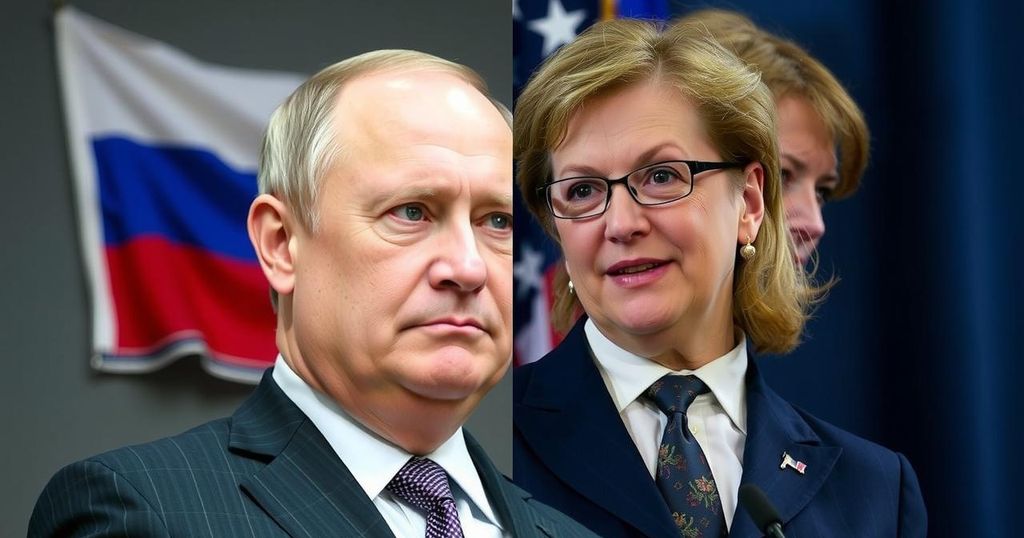Foreign Influences Shape German Election Amid Political Turmoil

Germany’s early election on February 23, 2025, faces significant foreign influence from Russia and the U.S. amid the collapse of Chancellor Scholz’s coalition. Both nations’ interventions appear to bolster the far-right AfD, which has seen a rise in popularity. Musk’s support for the AfD has sparked outrage among German leaders, highlighting concerns about foreign meddling in democracy.
As Germany prepares for an early general election on February 23, 2025, the political landscape is increasingly influenced by foreign actors, notably Russia and the United States. Following the dissolution of Chancellor Olaf Scholz’s coalition government, concerns about election integrity have escalated, particularly regarding unprecedented interference from both the East and West. Intelligence officials are sounding the alarm about Moscow’s covert operations aimed at destabilizing German support for Ukraine, while U.S. interventions, led by high-profile figures such as Elon Musk, are more overt, focusing on economic and migration issues.
The far-right Alternative for Germany (AfD) appears to be benefiting from these dynamics, showcasing a significant rise in support with 20 percent in recent polls, a substantial increase from the last election in 2021. Figures like Musk, who publicly endorses the AfD through social media platforms, have drawn criticism from German politicians, including Scholz himself, who stated that it is the voters, not social media influencers, who should determine the election’s outcome. Scholz’s Social Democrats express concern that Musk’s and Putin’s actions share similar objectives in attempting to induce chaos within Germany.
The political milieu in Germany has been further complicated by Musk’s provocative statements regarding prominent German leaders, leading to allegations of meddling unprecedented in the history of allied nations’ elections. Friedrich Merz, leader of the CDU/CSU party, echoed this sentiment, questioning the appropriateness of such foreign interference. Analysts, however, remain divided on the extent of these external influences’ impacts on the AfD’s fortunes, with some suggesting that the party’s pro-Russian base may inherently distrust U.S. messaging.
The upcoming early general election in Germany is set against a backdrop of severe political instability following the collapse of Chancellor Olaf Scholz’s coalition government. As foreign influences, particularly from Russia and the United States, become increasingly pronounced, the integrity of Germany’s democratic processes is drawing significant scrutiny. Historical concerns regarding election interference are magnified by current events, particularly amidst Russia’s conflict in Ukraine and the U.S. political landscape’s fluctuations. The emergence of the far-right AfD in this context has provoked debate around the implications of foreign influence on domestic politics as well as the party’s rising popularity.
In summary, the 2025 early general election in Germany is poised to be characterized by unprecedented foreign influence, especially from Russia and the United States. The engagement of figures like Elon Musk raises significant questions about interference in democratic processes, particularly concerning the far-right AfD’s growing support. As the election approaches, the interplay between domestic political dynamics and external pressures underscores the vulnerabilities of Germany’s political system amidst broader geopolitical tensions.
Original Source: www.barrons.com








